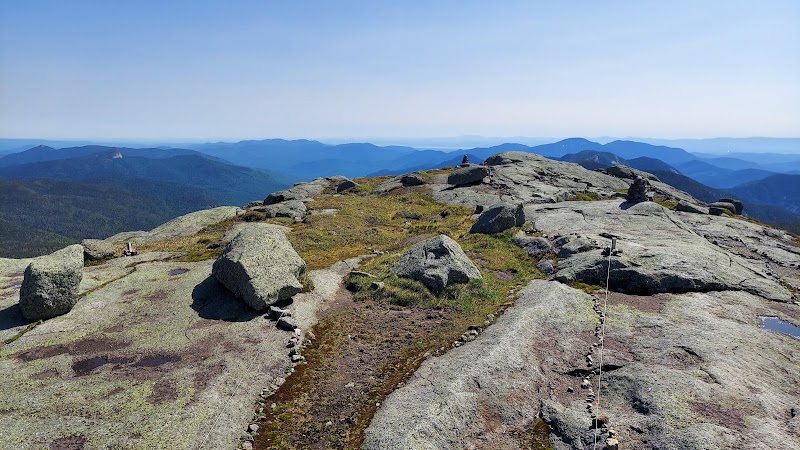
The White River Paddle Festival in Randolph, Vermont, invites paddlers to experience the river’s dynamic flow with routes for all skill levels. Combining hands-on workshops and scenic paddling, this festival balances excitement with practical guidance to help visitors prepare for a memorable water adventure.
Check Water Levels Before You Go
Consult local resources or festival updates for current river conditions to choose appropriate routes and ensure safety.
Wear Footwear with Good Grip
Riverbanks and launch points can be slippery and uneven, so sturdy shoes or river sandals with traction are a must.
Stay Hydrated and Protect Against Sun
Bring a refillable water bottle and apply waterproof sunscreen; paddling exposes you to direct sunlight for extended periods.
Arrive Early to Attend Clinics
Workshops fill up fast and provide valuable hands-on skills to boost confidence and safety on the water.
White River Paddle Festival: Embrace the Flow of Vermont’s Waterways
Immerse yourself in the pulse of the White River Paddle Festival, held each year in Randolph, Vermont—a destination where the river dares you to engage with its living current. This event draws paddlers of all levels to explore the White River’s smooth runs and challenging riffles, offering a blend of adventure and camaraderie alongside practical skills workshops. Whether you’re launching a kayak, canoe, or SUP, the river insists on respect and attentiveness, pushing you forward while revealing the New England landscape from a unique vantage point.
The festival centers around the White River’s approachable yet dynamic sections, with routes ranging from easy flatwater stretches perfect for beginners to intermediate rapids that test your control and confidence. Paddling distances vary but typically cover segments between 3 to 8 miles, winding through forested riverbanks whose trees lean in close, whispering the river’s moods. Elevation changes here are subtle but impactful: the currents occasionally quicken over shallow rocks and steeper grades that rapids form, keeping each stroke purposeful.
The festival programs skill-building clinics with experienced guides, spotlighting techniques for navigating swift currents, reading river features, and practicing safe entry and exit points. These sessions make it accessible for novices, while experts refine precision and agility. Alongside river time, vendors offer gear demos and local food, creating a practical hub for paddling and outdoor lifestyle culture.
Timing your visit is key. Spring runoff ramps up the river’s vigor, demanding advanced skills and excellent gear. Summer calms the flow, inviting relaxed exploration and social paddling under lush canopy shade. Fall brings crisp air and bright foliage, enhancing the sensory connection to the environment as the river mirrors the vivid colors above.
For preparation, expect to dress in quick-drying layers, secure footwear designed for slippery rocks, and pack plenty of water and sun protection. Launch points are well-marked but seek local advice on current water levels and put-in safety. Shuttles between river access spots streamline logistics, allowing full enjoyment of each paddle stretch without backtracking.
The White River itself acts as a fiercely independent companion, never still and always responsive to weather and season. To paddle here is to engage in a negotiation with natural forces—currents respond to your choices, trees frame your perspective, and wildlife like river otters and herons signal the health of these waters. Experience the White River Paddle Festival as an opportunity to synchronize your pace with the river’s steady push—an adventure framed by practicality, skill, and the raw vitality of Vermont’s waterways.
Nearby Trips
All Adventures
Boat Charters
Water Activities
Adventures near Randolph, Vermont
Discover the unique and memorable adventures that make Randolph, Vermont special.
Frequently Asked Questions
What skill levels are welcome at the White River Paddle Festival?
The festival accommodates paddlers from novices to intermediate and advanced levels, with a range of routes and skill workshops designed to match different abilities.
Are rental paddling gear options available during the festival?
Yes, several local outfitters partner with the festival to offer rentals of kayaks, canoes, and SUP boards, as well as safety equipment for participants without their own gear.
Can beginners participate safely in the White River Paddle Festival?
Absolutely. Beginners are encouraged to attend introductory clinics and choose gentler river sections. Guided tours and safety briefings ensure newcomers have a secure experience.
What local wildlife might paddlers encounter along the river?
Paddlers often spot river otters, great blue herons, kingfishers, and occasionally white-tailed deer near the banks, a reminder of the healthy river ecosystem.
Is the White River suitable for paddling year-round?
The river’s condition varies seasonally; spring and fall offer prime paddling windows, while winter ice typically halts activity. Summer is more relaxed and family-friendly.
How should I prepare for unpredictable weather during the festival?
Dress in layers, bring waterproof gear, and check forecasts regularly. The river’s temperament can shift quickly with rain or temperature changes, so adaptability is key.
Recommended Gear
Personal Flotation Device (PFD)
Vital for safety on moving water, a well-fitted PFD is required during all paddle activities.
Waterproof Dry Bag
Keeps essentials like phones, snacks, and extra clothes dry in the event of splashes or capsizing.
Quick-Drying Layered Clothing
Wear moisture-wicking layers that allow temperature regulation and dry rapidly if wet.
River-Appropriate Footwear
Closed-toe shoes with good traction protect feet from sharp rocks and slippery surfaces.
Local Insights
Hidden Gems
- "Access off-road trails along Wilder Dam for quiet forest views"
- "Small islands in gentle river sections where otters often play"
Wildlife
- "River otters"
- "Great blue herons"
- "Kingfishers"
- "White-tailed deer"
History
"The White River has been central to local communities and industries since colonial times, its water driven mills vital for early Vermont settlements."
